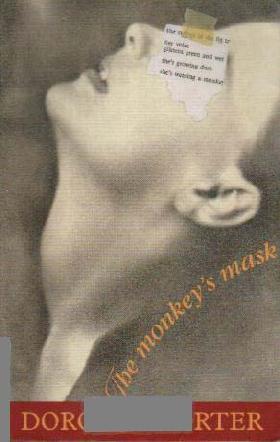View Around the World in 80 Books in a larger map
Two years ago I was at the WordStorm Festival in Darwin and I met the Australian poet Dorothy Porter. We'd both been published in "Over There", an anthology of Singaporean and Australian poets, and we were both gay poets who valued passion. So we hit it off rather well - she gave me a complimentary copy of "Crete", which was stunning, and I gave her a comp of my book "last boy".
The same December, the news came out that she'd died. She'd been struggling with cancer and hardly any of us knew. I wrote about it here.
"The Monkey's Mask" is the book that catapulted her into fame: took her from being a literary poet into the world of popular writing, because it was a crime thriller written in verse.

The poetry's very, very good - these short, terse pieces that don't always work on their own but which make so much more sense as a whole, as part of a character's voice. And it's a great protagonist she's got: Jillian McKenzie, 38 year-old lesbian private eye, sent down to track the whereabouts of a 19 year-old girl named Mickey - who, of course, writes poetry.
Jill (who reads no poetry of her own) ends up in readings and in bed and in knife fights with these university lecturer poets (and boy, does Porter skewer the hypocritical life of a poet; I just wonder who she based her caricatures on). And one of the great bits is how she has to go through Mickey's bad poetry - wailingly intense and cliched as it is, Porter makes it jump of the page, invests it with a startling sincerity - poetry that's good and bad at the same time.
It's an odd book, though - a little formulaic (or is it just simple, because there aren't that many twists and turns?), strangely unsatisfying with its end, though I can't give too much away. There is also no physical monkey's mask in the whole piece, which frustrates me, because as someone who holds Sun Wukong as an icon, the object of a monkey mask is sacred.
But it's still a helluva good read. And sexy.
Representative excerpt:
Dead kids upset me.
There's no drink
to take away the taste
of a fresh face rotting.
Useless
to tremble and vomit
and howl it's not fair.
You look at the spots
on the back of your hand
you look at the lines
fraying your face.
But you're still glad
it's the kid
not you.
Next book: Janet Frame's "Owls Do Cry" from New Zealand.


